Established in 1953 and still going strong.
Our methodologyFor 3 generations at the heart of the Paleo Faliro community.
OUR METHODOLOGY
Experiential learning in a safe and engaging classroom environment that encourages communication from the very first steps.
Our school aims to provide the conditions necessary for students to acquire the language and not just learn it in a mechanical way. Acquiring a language is what allows students to produce it correctly and confidently, relying first on what sounds right and then slowly learning its mechanics.
Based on all the science around the acquisition of languages, we select our teachers, our books, our materials and our activities.
A Place to Grow
In class we ensure:
Material: one level higher than the current level of students. (+1)
Research has shown that the teaching material should be neither too simple nor too demanding in order to assist students in their learning. That’s why it is very important for all new students to join the right class after having an oral and written placement test, in order to achieve homogeneity in our classes. Classroom materials and activities are also selected with the correct level in mind.
Interesting material and motivation
The choice of books we use at our school is of primary importance because our aim is to achieve communication and engagement over interesting and up-to-date content. We often renew the book series we use in order to ensure that they suit our students’ needs. Class time is often enriched with extra activities often in the form of team work, pair work and collaboration with other classes.
Our students are in a foreign language environment from the very early classes (pre-junior, juniors) and receive a lot of input. Initially they hear the language and are at a level where they listen and understand more and more every day.
It takes time, patience and respect of every child’s unique pace to progress to the production of the language, which is the ultimate goal.
Study Skills
The teachers, even from early on, show the students different ways of studying in order to help them select the most efficient for them. Studying often goes together with copying, underlining, making notes, reading, asking questions etc. The students can use the knowledge they get in their student life in general, not only in learning a foreign language. Our goal is to have self-confident, independent learners that don’t need help from their parents or teachers in their studying. These skills are going to stay with them throughout their lives.
2 factors that remain outside the class: stress and low self-confidence
We encourage our students to face challenges with confidence and without stress. During exams or tests, mindfulness skills such as mindful breathing and focusing on the present can help students clear their mind and achieve their goals.
We invest in our students
21st century skills

Communication
The class is a foreign language environment and students from the very beginning try to use the language they learn. Languages are nothing if not a means of communication and long gone are the days when students acquired certificates with barely any speaking skills. In fact, when the time comes for oral exams, students feel completely at ease relying on the fluency achieved years before. The confidence they have will remain with them and relied upon in academic and professional environments. Equally important to fluency is accuracy. Students learn to present convincing arguments and engage their listeners and readers. Communication is also achieved through the use of indispensable digital tools that help us express ourselves and that learners use for their projects.

Critical thinking
From the very beginning we encourage our students to demonstrate critical thinking, asking questions and expressing their opinion on social or personal issues. At the upper levels, where the students are more fluent, topics such as climate change, mental health, education or social issues are discussed. Frequently, students explore sophisticated topics even before having discussed them in Greek school. In addition, students often participate in debates, lectures and workshops with students abroad that enrich their knowledge and their experiences.

Critical thinking

Creativity
Creativity is a basic element of our human nature, often more obvious in kids than adults. In our school we try to foster creativity in the classroom because we believe that is a very important skill that is often downplayed at school. The value of a good idea, even of a not so good idea that thanks to collaboration and brainstorming can be improved, is something that we emphasize at our school and we often ask our students for new ideas about a project and often engage learners in creative work such us storytelling, poetry, painting and crafts. Scientists say that creativity will be the skill that will be replaced last in the age of AI, so we invest heavily in it!

Collaboration
In the modern workplace individual work is all but eclipsed. The level of specialization and the requirements in every career are so high that collaboration is an essential element of success. Collaboration, however, is a skill that has to be learnt from a young age, as it does not come naturally to everyone, but when honed it gets easier throughout the years. There are students that find collaboration pleasant and productive and students that find difficulties in collaborating with others and try to avoid it. What we try to do in the class is through pair work and teamwork teach students about the principles of collaboration, for instance how to be a good listener, how to feel good in sharing feedback, and the importance of being empathetic and accountable. All the above are values that will help us not only in our job but in our life in general.

Collaboration

Citizenship
The internet and social media have in essence eliminated borders as they allow instant communication and access to information. Simultaneously, all the global issues that concern students such us climate change, pandemics, fake newsand human relationships in the age of technology are all issues that need a global view and an inclusive approach.
During class time, we try to make our students think about themselves as future global citizens and about what they can do in order to improve their lives and the lives of others. Our teachers try to instill students with social awareness, respect, love for the environment and community care through simple talks and tasks that could include practical ways to improve our neighborhood but also organization of fundraisers and volunteering.
A holistic approach
META-LEARNING: Growth Mindset – Resilience – Mindfulness
GROWTH MINDSET
In our school we believe in a growth mindset that recognizes the mind as a muscle of the human body that can be trained, changed and strengthened.
So, we encourage our students to do their best and never give up, avoiding phrases such as ‘I am not good at this’, ‘I can’t learn new vocabulary’ etc. On the contrary, we teach students new ways of learning and growing with almost always excellent results. Even when a result isn’t as good as we expected, we try to encourage the student saying for example that ‘They are not performing well in this skill yet’ instead ’ of saying ‘They aren’t good at it’.
Communication with students and parents is based on this principle. Our goal is to teach students that learning is a dynamic process through which someone can evolve and which requires commitment and consistency to bear fruit.
RESILIENCE
Thousands of studies have shown that what distinguishes successful adults in a wide range of professions, from artists to teachers and entrepreneurs, but is also an antidote to states like depression, is the endurance and perseverance they show in the inevitable difficulties that life throws us. But how can we prepare our children for life's challenges? How can we instill in them the value of perseverance and endurance?
One of the most important things we can do is to systematically recognize and reward theeffortthat our students make. For this reason the progress reports we give our students every term include three grades: a grade on written performance, a grade on oral performance and a grade on the student's effort. This includes elements such as being on time, respecting teachers and classmates, handing in assignments on time, etc. Our experience shows that it is very important for a student to be praised for their effort, even when their performance is not equally satisfactory yet, because with continued effort their performance will also improve as these are inextricably connected. At the same time, when the performance is good but achieved without substantial effort, this should be reflected on the students’ report card too as this lack of commitment may create problems in the long run.
This method makes our students understand from a very young age the importance of effort and perseverance, which will help them to cultivate the much-desired endurance as well as the self-confidence one gains when one sees their efforts being rewarded.
MINDFULNESS
Mindfulness practices are an antidote to today’s fast-paced life and continuous multitasking. Although we often hear students say that they do just fine when multitasking, scientists disagree and explain that our brains will need many decades or even centuries of evolution to be able to do many processes at the same time successfully.
For decades, some schools, mainly abroad, have adopted practices such as breathing, concentration and relaxation in order to restore the body and spirit of students to normal rhythms by expelling excess energy, stress and negative feelings for ourselves and others. In our school, mindfulness was introduced by Mrs. Bouki Stamatopoulou in 2015 in collaboration with the 'Mindful Schools' organization, and students, especially those who suffer from anxiety attacks, are encouraged to take a few minutes of calm and concentration with specific exercises in order to better their performance but also protect their mental health. With every moment of awareness, students are encouraged at all times to be focused and notice when their thinking wanders out of the room in order to get the most out of the lesson and continue growing with success, joy and confidence.
An unforgettable journey in learning
With all the above at the forefront of our approach our school has for decades achieved:
1.
Outstanding results in all language exams as a result of our holistic, science-based approach.
2.
The cultivation of essential skills and a love of learning in hundreds of students annually.
3.
The creation of hundreds of wonderful memories inside and outside of the classroom.
4.
The continuous trust and confidence shown by three generations of learners and parents.
